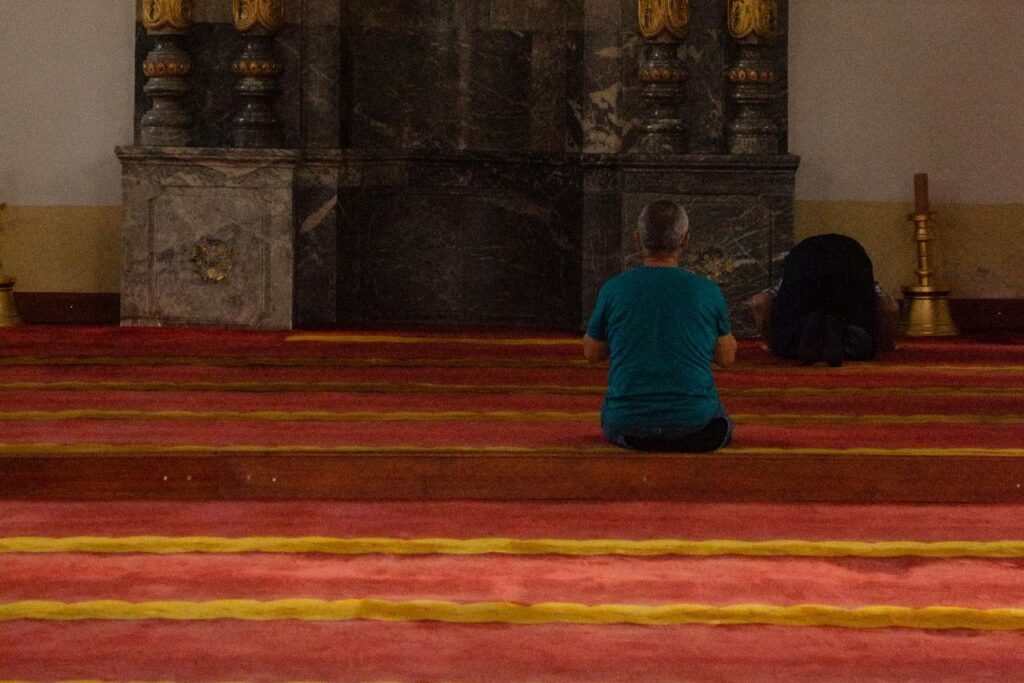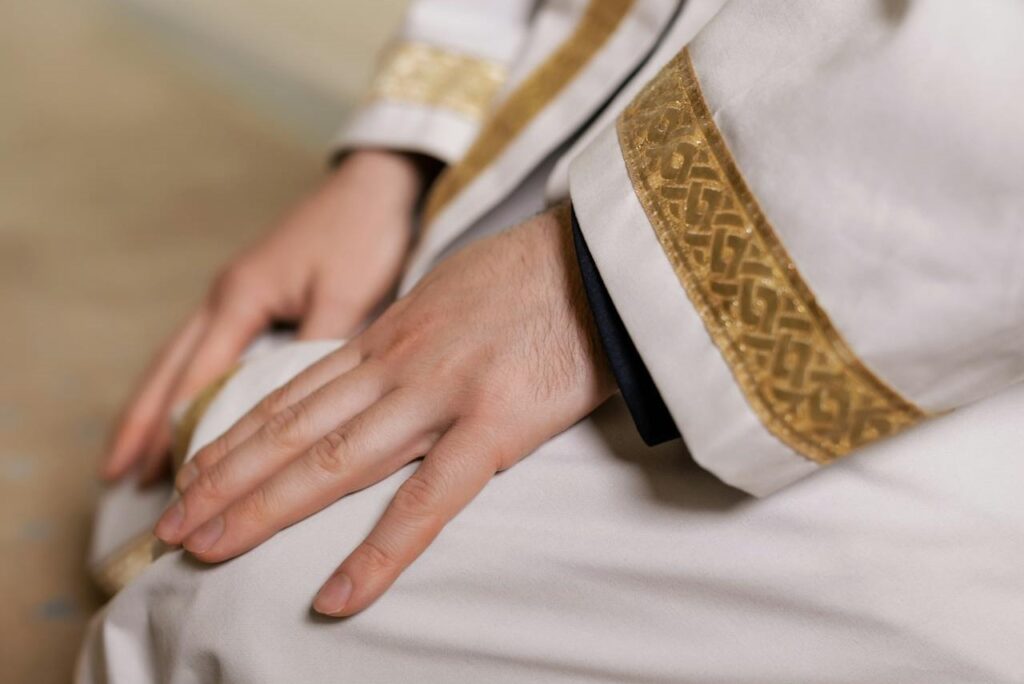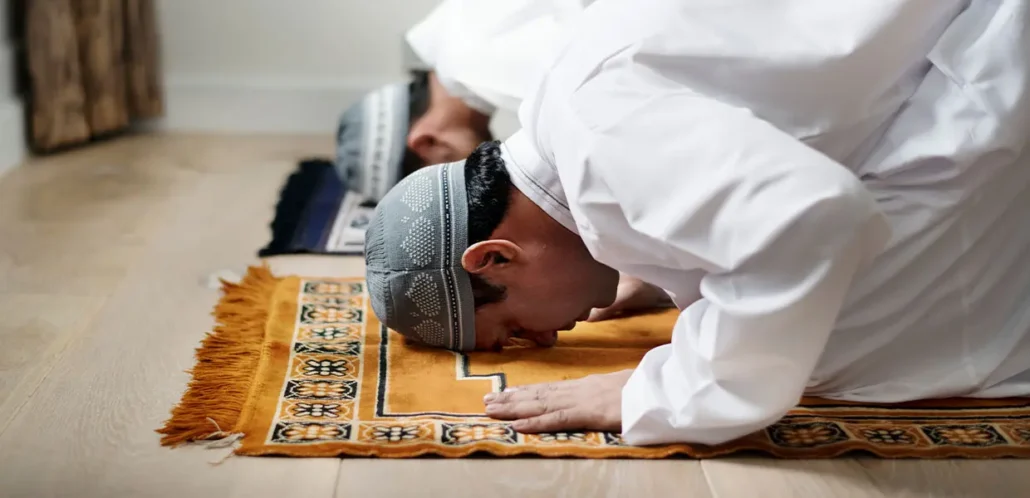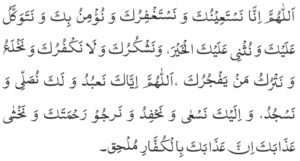In the life of a Muslim, prayer is a fundamental practice that shapes daily routines and spiritual growth. While obligatory prayers (Fard) and sunnah prayers form the core of Islamic worship, there is another dimension that adds depth and richness to this spiritual practice—Nafl prayers. These devotional or voluntary prayers can be performed in a certain situation, allowing Muslims to draw closer to Allah (SWT) and seek forgiveness for sins. But what exactly are Nafl prayers, and why are these optional prayers in Islam so significant?
In this blog post, we will explore what are the nafl prayers, including their rewards, types, how to perform nafl, and practical tips for incorporating them into your daily routine.
If you’re looking to grow spiritually and feel more connected to Allah, learning to read and understand the Quran can make a big difference. Why not join our online Quran course, where you can also learn how to pray Salah practically? Ready to begin? Click here, and let’s take this spiritual journey together!
The Rewards of Nafl Prayers
The beauty of Islam lies in its encouragement of voluntary acts of worship, and Nafl prayers are a prime example of this. Many hadiths emphasize various rewards of Nafl prayers. The Prophet Muhammad (PBUH) said, “The first thing for which a person will be brought to account on the Day of Resurrection will be his Salah. If it is found to be complete, his other deeds and actions will also be accepted” (Sunan Ibn Majah). This Hadith underscores the importance of prayer in general, including voluntary prayers, in securing a favorable judgment in the Hereafter.
Furthermore, Nafl prayers act as a shield against sins and provide a means of seeking forgiveness. The Prophet Muhammad (PBUH) said, “When a Muslim prays two Rak’ahs to Allah (SWT) with sincere intention, his sins are forgiven” (Sahih Bukhari).
Types of Nafl Salah
Nafl prayers come in various forms, each with its unique significance and manner of performance. Here’s a look at different types of nafl salah:
1. Tahajjud Prayer
Tahajjud is a late-night voluntary prayer performed after waking up from sleep. It is highly recommended and regarded as a means of earning Allah’s (SWT) special favor. The Quran states, “And during the night, pray Tahajjud, an additional prayer for you; it may be that your Lord will raise you to a praiseworthy station” (Quran 17:79).
2. Ishraaq Prayer
Ishraaq is performed shortly after sunrise, approximately 15-20 minutes after ending Fajr prayer. This prayer is a way to start the day with gratitude and spiritual awareness. The Prophet Muhammad (PBUH) said, “Whoever prays Fajr in congregation and then sits remembering Allah (SWT) until the sun rises, then prays two Rak’ahs (nafl salah after sunrise), will have a reward like that of Hajj and Umrah” (Tirmidhi).

3. Chasht Prayer
Chasht also known as salatul Duha, is performed after the sun has fully risen and before the time for Zawal. It is a means of seeking Allah’s (SWT) blessings for the day ahead. The Prophet Muhammad (PBUH) said, “In the morning, charity is due on every joint bone of the body of every one of you. Every utterance of Allah’s glorification is an act of charity. To offer two Rak’ahs of Duha is equal to all this (in reward)” (Muslim).
4. Awwabin Prayer
Awwabin is performed after Maghrib prayer and consists of six Rak’ahs (in sets of two). It is a way to seek forgiveness and reflect on the day’s actions. The Prophet Muhammad (PBUH) mentioned the importance of this prayer, emphasizing its role in spiritual purification.
5. Tahiyyat al Masjid
This prayer is performed upon entering a mosque, consisting of two Rak’ahs. It is a gesture of respect and greeting to the mosque, acknowledging its sanctity. The Prophet Muhammad (PBUH) said, “When any one of you enters the mosque, he should not sit until he has prayed two Rak’ahs” (Bukhari and Muslim).
6. Tahiyyat al Wudu
Performed after completing ablution (wudu), this prayer consists of two Rak’ahs and serves as an act of gratitude for the purification process. The Prophet Muhammad (PBUH) said, “Whoever performs ablution like this of mine and then prays two Rak’ahs in which he does not think of worldly things, his past sins will be forgiven” (Bukhari).
7. Salat al Istikhara
Finding clarity through prayer of Istikhara is a sunnah of Prophet PBUH. It is performed when seeking guidance from Allah (SWT) regarding a particular decision or matter. It involves reciting a specific dua (supplication) after the two rakat prayer, asking for clarity and direction.
8. Salat al Safar
This prayer is performed when embarking on a journey, seeking protection and blessings for safe travel. It consists of two Rak’ahs and is a way to entrust one’s safety to Allah (SWT).
9. Salat al Tawbah
This prayer is performed when seeking repentance for sins. It involves sincere repentance and asking Allah (SWT) for forgiveness. The Prophet Muhammad (PBUH) said, “There is no one who commits a sin, then purifies himself well, then stands and prays two Rak’ahs, then asks Allah (SWT) for forgiveness, but Allah (SWT) will forgive him” (Abu Dawood).
10. Salat al Hajat
Hajat prayers are performed when seeking help or fulfilling a specific need. It involves expressing one’s needs to Allah (SWT) and asking for His assistance in supplication after two rakahs prayer.

How to Pray Nafl
Performing Nafl prayer involves specific steps that are similar to obligatory prayer but with slight variations depending on the type of Nafl prayer being performed. Here is a step-by-step guide on how to pray 2 rakat nafl:
Standing (Qiyam): Begin by standing upright, facing the Qibla (direction of the Kaaba in Mecca). Ensure your body is clean and you have performed wudu (ablution).
Intention for Nafl Prayer: Make a sincere intention (niyyah) in your heart for the specific Nafl prayer you are about to perform. This intention should be made silently.
Takbeer-e-Tehrima: Raise your hands to your ears and say “Allahu Akbar” (Allah is the Greatest) to begin the prayer.
Looking at the Place of Prostration: Lower your gaze and focus on the place where your forehead will touch the ground during prostration (sajda).
Read the Opening Dua for Salah: Recite the opening supplication (dua) for Salah, such as “Subhanaka Allahumma wa bihamdika, wa tabarakasmuka, wa ta’ala jadduka, wa la ilaha ghayruk” (Glory is to You, O Allah, and praise is to You. Blessed is Your Name, and exalted is Your Majesty. There is no deity besides You).
Read Taawudh & Tasmiyah: Recite Taawudh (“A’udhu billahi min ash-shaytan ir-rajim” – I seek refuge with Allah from the accursed devil) and Tasmiyah (“Bismillah ir-Rahman ir-Rahim” – In the name of Allah, the Most Gracious, the Most Merciful).
Recitation of Fatiha: Recite Surah Al-Fatiha from the Quran and recite any other Surah or verse from the Quran after Surah Al-Fatiha.
Ruku (The Bowing): Bend forward and place your hands on your knees, saying “Subhana Rabbiyal Azeem” (Glory is to my Lord, the Most Great) three times.
Qawmah (Straightening Up from the Rukoo): Rise from the bowing position (ruku) and stand upright, saying “Sami Allahu liman hamidah” (Allah hears those who praise Him).
Sajda (First Prostration): Prostrate by placing your toes, knees, palms, nose and forehead (elbow in case of women) on the ground, saying “Subhana Rabbiyal A’la” (Glory is to my Lord, the Most High) three times.
Jalsah (Sitting between Prostrations): Sit back on your heels and say “Rabbighfir li” (O Lord, forgive me) once.
Sajda (Second Prostration): Prostrate again, repeating “Subhana Rabbiyal A’la” three times.
Second Rakat (2nd unit of prayer): Stand up to begin the second Rakat, repeating the steps from Surah Al-Fatiha to the second prostration.
Tashahud: In the final sitting position, recite the Tashahud (testification) and any additional supplications.
Tasleem (Ending The Prayer): End the prayer by turning your head to the right and then to the left, saying “Assalamu Alaikum wa Rahmatullah” (Peace and mercy of Allah be upon you).
Dua: Conclude your prayer with personal supplications (dua), asking Allah (SWT) for His mercy, guidance, and blessings.

Incorporating Nafl Prayer into Daily Routine
Incorporating Nafl prayers into your daily routine can significantly enhance your spiritual practice and bring you closer to Allah (SWT). Here are some practical tips to help you make these voluntary prayers a regular part of your life:
Firstly, identify the best times for performing Nafl prayer. Consider setting aside specific times each day, such as after Fajr or before going to bed, to perform these voluntary prayers. Consistency is key, and even a few minutes of dedicated time can make a profound difference.
Secondly, integrate these optional prayers into your existing prayer routine. For example, you can perform Tahiyyat al Masjid when entering the mosque for obligatory prayers or Tahiyyat al Wudu after completing your ablution. These small additions can gradually build a habit of performing Nafl prayers regularly.
Lastly, make use of reminders and resources to stay motivated. Set reminders on your phone or use prayer apps to notify you of the best times for Nafl prayers. Additionally, seek inspiration from books, lectures, and online resources that highlight the benefits and rewards of Nafl prayers.
Conclusion
Nafl prayers hold a special place in the spiritual journey of a Muslim. They offer an opportunity to seek Allah’s (SWT) blessings, draw closer to Him, and attain numerous rewards. By understanding the significance of these prayers, exploring their various types, and learning how to pray nafl prayer, you can incorporate these voluntary acts of worship into your daily routine.
We encourage you to start to pray nafl in your daily worship and experience the profound impact they can have on your life. Feel free to reach out with any questions. Together, let’s embark on a more fulfilling spiritual journey.



 Transliteration:Allahumma inna nasta‘inuka wa nastaghfiruka, wa nu‘minu bika wa natawakkalu ‘alaika, wa nuthni ‘alaikal khair, wa nash-kuruka wala nakfuruka, wa nakhla‘u wa natruku man-yafjuruk. Allahumma iyyaka na‘budu wa laka nusalli wa nasjudu, wa ilaika nas‘a wa nahfidu, wa narju rahmataka, wa nakhsha ‘adhabaka, Inna ‘adhabaka bil kuffari mulhiq.Translation:O Allah, we beseech Thy help and ask Thy protection and believe in Thee and trust in Thee and we praise Thee in the best manner and we thank Thee and we are not ungrateful to Thee, and we cast off and forsake him who disobeys Thee. O Allah! Thee alone do we serve and to Thee alone do we pray and make obeisance and to Thee we flee and we are quick and we hope for Thy mercy and we fear Thy chastisement, for surely Thy chastisement overtakes the unbelievers.
Transliteration:Allahumma inna nasta‘inuka wa nastaghfiruka, wa nu‘minu bika wa natawakkalu ‘alaika, wa nuthni ‘alaikal khair, wa nash-kuruka wala nakfuruka, wa nakhla‘u wa natruku man-yafjuruk. Allahumma iyyaka na‘budu wa laka nusalli wa nasjudu, wa ilaika nas‘a wa nahfidu, wa narju rahmataka, wa nakhsha ‘adhabaka, Inna ‘adhabaka bil kuffari mulhiq.Translation:O Allah, we beseech Thy help and ask Thy protection and believe in Thee and trust in Thee and we praise Thee in the best manner and we thank Thee and we are not ungrateful to Thee, and we cast off and forsake him who disobeys Thee. O Allah! Thee alone do we serve and to Thee alone do we pray and make obeisance and to Thee we flee and we are quick and we hope for Thy mercy and we fear Thy chastisement, for surely Thy chastisement overtakes the unbelievers.